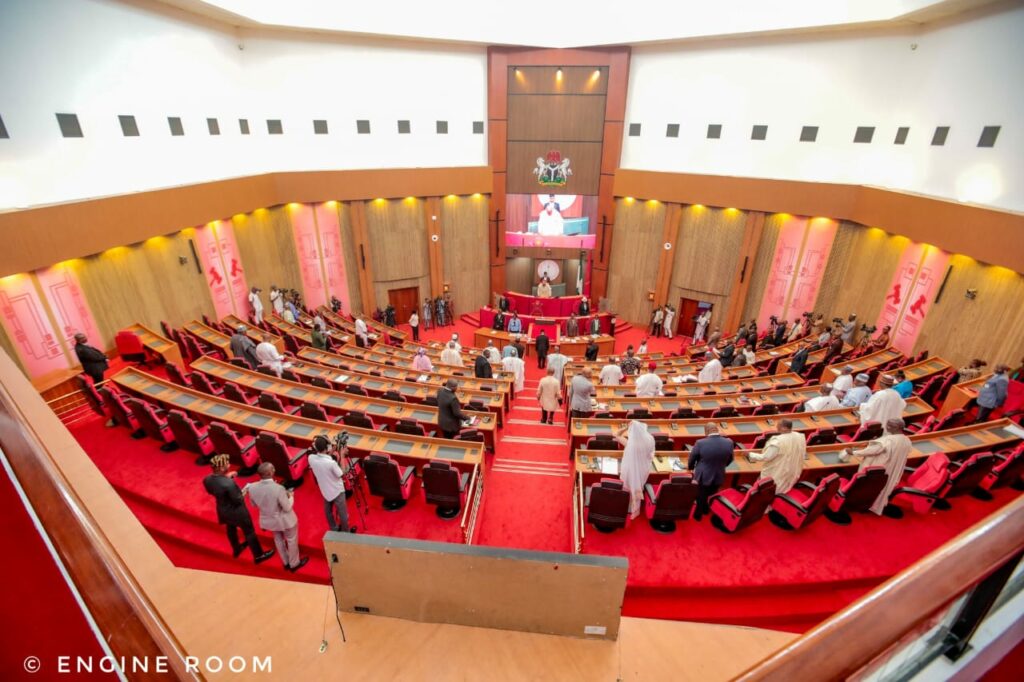From Adesuwa Tsan, Abuja
In a bid to increase the participation of local contractors in the execution of government contracts, the Senate has resolved to amend the Public Procurement and Local Content Acts to eliminate restrictive provisions.
To this end, it directed its Committees on Public Procurement and Local Content to liaise with relevant agencies, identify gaps in the existing laws, and draft a bill to address them.
This followed the adoption of a motion sponsored by Suleiman Umar Sadiq during plenary on Tuesday, July 1, titled “The preponderant need to engage local indigenous contractors for the execution of small-scale federal government contracts to stimulate grassroots economic development.”
Leading the debate, Sadiq noted that “despite existing local content policies and initiatives, including the Renewed Hope Infrastructure Development Fund by the current administration, numerous small-scale federal government contracts, particularly below fifty million naira (₦50,000,000), are often executed by larger, non-indigenous firms, thereby limiting direct economic benefits to local communities and stifling the growth of nascent indigenous enterprises across the 774 local government areas.”
He stressed that small and medium-sized enterprises (SMEs) and local contractors are the bedrock of the Nigerian economy, with vast potential for job creation, wealth distribution, and local capacity building, especially at the grassroots.
Sadiq argued that engaging local contractors in smaller contracts would enhance community participation, create jobs, increase productivity, foster public ownership of government projects, and ensure that public spending circulates within local economies.
He further urged the Senate to direct the government to relax certain bidding requirements, such as three years of tax clearance for contracts below ₦50 million, to make them accessible to more local firms.
Several senators supported the motion, decrying the stringent conditions imposed by the Bureau of Public Procurement (BPP) and the Nigerian Content Development and Monitoring Board (NCDMB), which they said make it nearly impossible for small indigenous companies to compete.
Deputy Senate President Barau Jibrin backed the motion, stating, “Our contractors are being short-changed in their own land,” and called for an amendment to the procurement and local content laws.
Chairman of the Senate Committee on Appropriations, Solomon Olamilekan Adeola, emphasised that the amendments should expand the compulsory involvement of local companies beyond the oil and gas sector to other sectors of the economy.
Senate President Godswill Akpabio also supported the motion and noted that he promoted local contractors during his tenure as governor of Akwa Ibom State. He lamented that, although laws mandate foreign firms to transfer technology to local workers, “most times, they come with their own people from abroad” and fail to build local capacity. “How do you expect our people to get experience if we continue like this?” he asked, urging the committees to conduct a holistic review of the laws.
Also contributing, former Edo State governor Adams Oshiomhole cautioned that local contractors must be adequately equipped and competent. Recalling his experience as Edo State governor, he said he awarded contracts to local firms, but many delivered poor-quality work. “Nobody wants to throw away money in the name of patriotism,” he said. “Let us treat this matter on a case-by-case basis depending on the job.”

